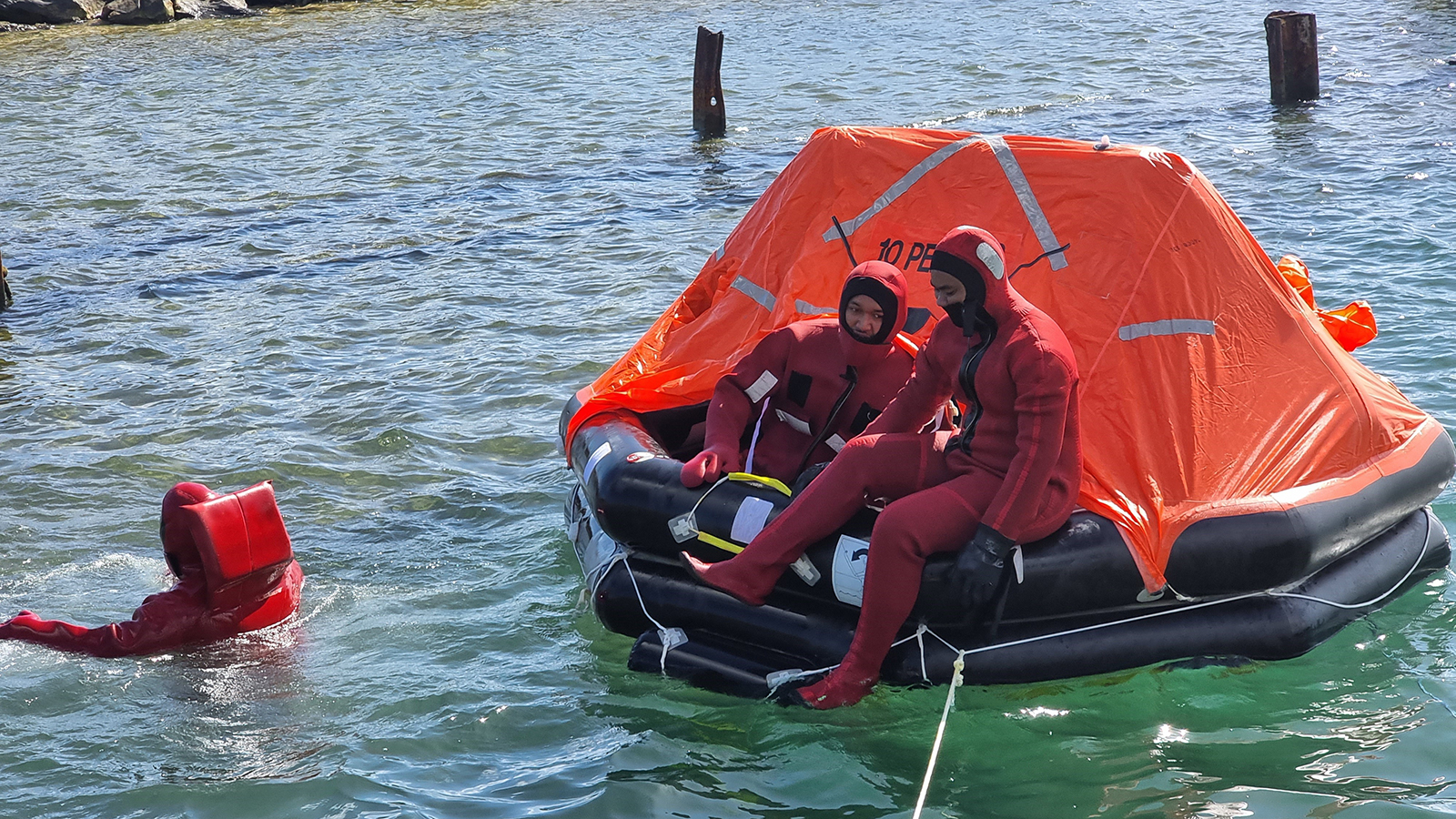SBMA prepares inspectors for exploration expeditions
Friday 16 September 2022 | Written by Caleb Fotheringham | Published in Local, National

Participants in immersion suits navigate the life raft. SBMA/22091514
Cook Islands Seabed Minerals Authority’s (SBMA) held a sea survival training course this week to prepare their inspectors before sending them on exploration vessels as part of its monitoring and compliance programme.
SBMA ran two courses, one on personal safety and social responsibilities and another on personal survival techniques, which focused on sea survival once a person abandons ship.
The training course held on Tuesday included a demonstration of an emergency flare.
SBMA technical director John Parianos said the training was a combination of theory and practical exercises.
“The practical exercises included donning of life vests and survival suits, learning to jump into the water safely – which is harder than it looks –, entering a life raft, helping unconscious team members, etc.,” Parianos said.
“There was a lot of teamwork needed, and that is important so that everyone knows in an emergency to work together.
“We also demonstrated how the life raft deploys and how the emergency flares work.”
Parianos said SBMA set up the course and arranged the instructor. He said the SBMA inspectors needed to do the training before going out on exploration vessels as part of its monitoring and compliance programme.
The Authority extended the invitation to agencies and companies in the seabed minerals space.
There were 21 participants, but, Parianos said more people were interested so the course would run again next year.
“Safety is something that we feel everyone should promote and collaborate on,” he said.
“While for some participants this was a refresher, for others this was really their first time and despite some nerves, everyone did really well and encouraged each other.”
One of the participants, Junior Tapoki from the National Environment Service said he had done similar trainings in the past, however, they were not as advanced as this week’s courses.
As part of the training, Tapoki said he learnt to deploy a life raft, enter into a life raft with the correct technique and to wear survival life suits.
He wore an immersion suit as part of the training, which was a full-body red suit.
“The purpose of these protective suits is to help reduce the loss of body heat when wearing it in cold water in cases of emergency when abandoning the ship,” Tapoki said.
“Though it is unlikely that we will need to use these in our tropical waters, learning about these suits and how to wear them was a part of the course.”
Tapoki said getting into the suit was difficult at first but got easier when he built up momentum.
He said they were not as hot as he thought they would be and comfy to float in.
The courses run were from the International Maritime Organisation’s International Convention on Standards of Training, Certification and Watchkeeping.
“This is the standard required all over the world including for regulatory groups in the Cook Islands,” Parianos said.
The certification lasts five years.
In February this year, Cook Islands Cabinet formally approved the three seabed minerals (SBM) exploration licence applications from CIC Limited, CIIC Seabed Resources Limited and Moana Minerals Limited, at least one of the companies have started their exploration expedition.




































